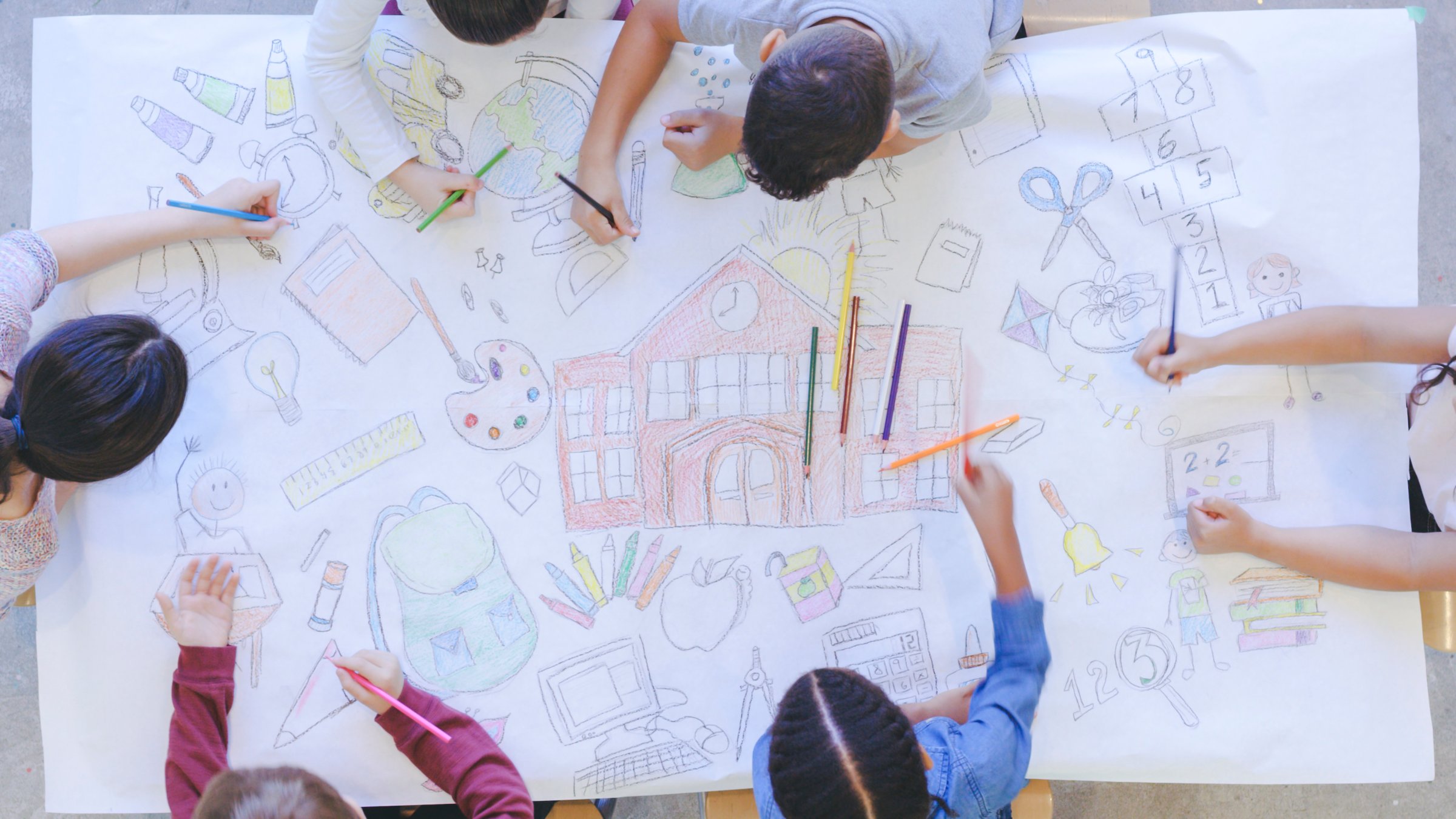
Welcome to COVID Questions, TIME’s advice column. We’re trying to make living through the pandemic a little easier, with expert-backed answers to your toughest coronavirus-related dilemmas. While we can’t and don’t offer medical advice—those questions should go to your doctor—we hope this column will help you sort through this stressful and confusing time. Got a question? Write to us at covidquestions@time.com.
Today, Mike from Wisconsin asks:
“My wife and I have two kids, both in daycare full-time. Is it safe for kids who are in daycare/school together to get together outside of school? Inside? Without masks? What about the parents of those kids? We live in Wisconsin, so outside prolonged play time isn’t feasible during the winter. Our kids are under five, so both are unmasked inside with other kids per state policy. It seems that if kids are unmasked inside for hours on end in daycare, doing a few hours together on the weekend wouldn’t add any risk. It also seems logical the parents could also get together. What do you think?”
Having a pod—a small group of people with whom you spend time inside—is appealing for obvious reasons, but it can be trickier to pull off than you might think. “Podding means different things to different people,” says Dr. Beth Thielen, a pediatric medicine and infectious disease physician at the University of Minnesota Medical School. It’s not uncommon to learn too late that someone in your pod is also seeing their parents and their husband’s friends, making your bubble a whole lot larger than you intended.
But the truth is, your children are basically already in a pod with their classmates since they spend so much time together unmasked, Thielen says. (For what it’s worth, she wouldn’t consider this the case if the kids spent all day in masks, as most older children do in the classroom.) “You’ve already committed to sharing germs with this group,” Thielen says, “so you may as well maximize the benefits.”
As you suggest, there’s not much difference between kids hanging out unmasked at daycare and the same kids hanging out unmasked in a house. And it’s totally understandable to want your young kids to get some social interaction, which is important for mental health and development. Plus, young kids get seriously ill with COVID-19 much less often than adults. And—while it’s important to say we don’t know this for sure—there’s some preliminary evidence to suggest kids are less likely to spread COVID-19 than adults. One recent paper analyzed 213 COVID-19 clusters in 12 countries and found that only about 4% originated with a child. Another recent study from France found that it was rare for kids to give each other COVID-19 in daycare settings.
But before you go all-in on the pod system, Thielen says it’s important to discuss ground rules with other parents. You should all be prepared to talk about your family’s other social interactions; what sorts of activities you do outside the house; circumstances that might raise your risk of exposure, like someone in the household working in health care; and whether you’ve been vaccinated or had COVID-19 before. (Here’s a comprehensive list of discussion topics to get you started.)
Of course, your kids are already seeing each other at daycare. But if you find that some families are organizing playdates with kids outside the daycare bubble, or taking other risks that make you uneasy, it’s probably best to minimize exposure and avoid weekend plans with those kids.
As for whether you can see other parents socially—that’s a little more complicated, says Dr. Kelly Michelson, a medical ethicist and pediatric critical care physician at Lurie Children’s Hospital. You are somewhat inherently in a bubble with these other parents, as you point out. But each interaction with each person carries its own risks. It’s possible, Michelson notes, for one family member to catch COVID-19 but not spread it to others in the household. That means each person you add to your bubble—even if they are living under the same roof as someone else in the bubble—raises your chances of being exposed to the virus. “The fewer people you’re exposed to, the fewer chances you have to spread [or catch] the virus,” Michelson says.
Every choice during the pandemic involves balancing risks and benefits. Michelson says the least-risky choice is sending your kids to daycare but not introducing any weekend plans. The middle ground is setting up weekend playdates for the kids, but not seeing other parents indoors. And the riskiest choice is getting entire families together.
You may still decide it’s worth it to see other parents, given the extent to which you’re already sharing germs. Honestly, that’s understandable after these long months of isolation. But if you do, it’s smart to keep the pod small and establish ground rules to minimize risks for everyone.
More Must-Reads from TIME
- Donald Trump Is TIME's 2024 Person of the Year
- Why We Chose Trump as Person of the Year
- Is Intermittent Fasting Good or Bad for You?
- The 100 Must-Read Books of 2024
- The 20 Best Christmas TV Episodes
- Column: If Optimism Feels Ridiculous Now, Try Hope
- The Future of Climate Action Is Trade Policy
- Merle Bombardieri Is Helping People Make the Baby Decision
Write to Jamie Ducharme at jamie.ducharme@time.com